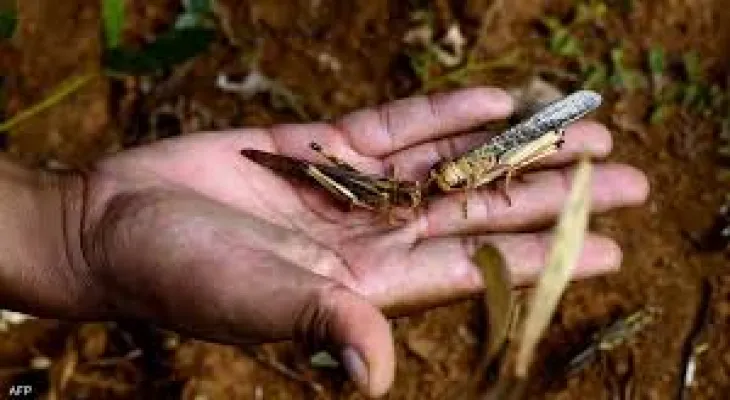Search here
Newspaper
Search here

Arab Canada News
News

Published: April 21, 2022
The study, published in the journal Nature, identified for the first time a clear and alarming link between the climate crisis and intensive agriculture and showed that in places where these impacts are particularly high, insect abundance has already declined by about 50% while the number of species has dropped by 27%.
These findings raise serious concerns, according to Charlotte Outhwaite, the lead author of the study and a researcher at University College London, given the important role of insects in local ecosystems, pollination, and food production, and she noted that the loss of insects could threaten human health and food security.
Dave Goulson, a professor of biology at the University of Sussex in the UK, previously told CNN: "Three-quarters of our crops depend on insect pollinators." "Crops will start to fail. We won't have things like strawberries.
Tom Oliver, professor of applied ecology at the University of Reading, said in a statement that scientists still do not know when insect numbers may reach a point of no return, where it will be difficult to reverse their losses.
Oliver, who was not involved in the study, said: "Regarding the potential tipping point where the loss of insects causes entire ecosystems to collapse, the honest answer is we don't know when the point of no return is." "We know you can't keep losing species without eventually causing a catastrophic outcome."
He compared the gradual loss to removing rivets from an airplane, something you cannot keep doing "without eventually falling out of the sky."
Researchers analyzed 20 years of data from over 6,000 sites and studied nearly 18,000 insect species, including butterflies, moths, dragonflies, grasshoppers, and bees.
They concluded that in areas with low agricultural intensity, less climate warming, and nearby natural habitats, insects only declined by 7%, compared to a 63% decline in areas with less natural cover.
A recent United Nations report on adapting to the climate crisis confirmed how closely linked the world’s ecosystems are to human systems. Unless the planet reduces heat-trapping emissions, these systems will continue to see significant biodiversity losses — especially insects.
Oliver said: "Whether these remaining insects can continue to support ecosystem functioning, or if they will eventually lose themselves, remains an open question." "Under the precautionary principle, however, it would be better to act now so we do not recognize ecosystem collapse by experiencing it."
Comments